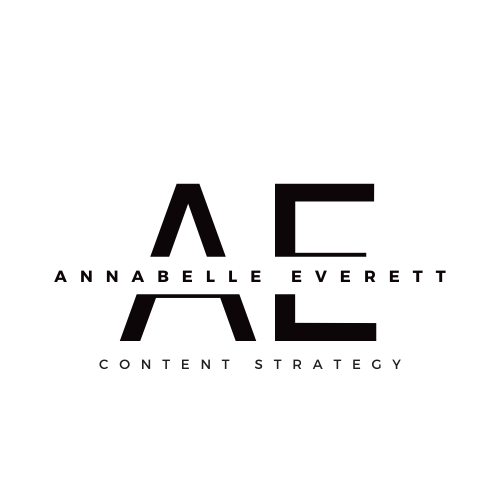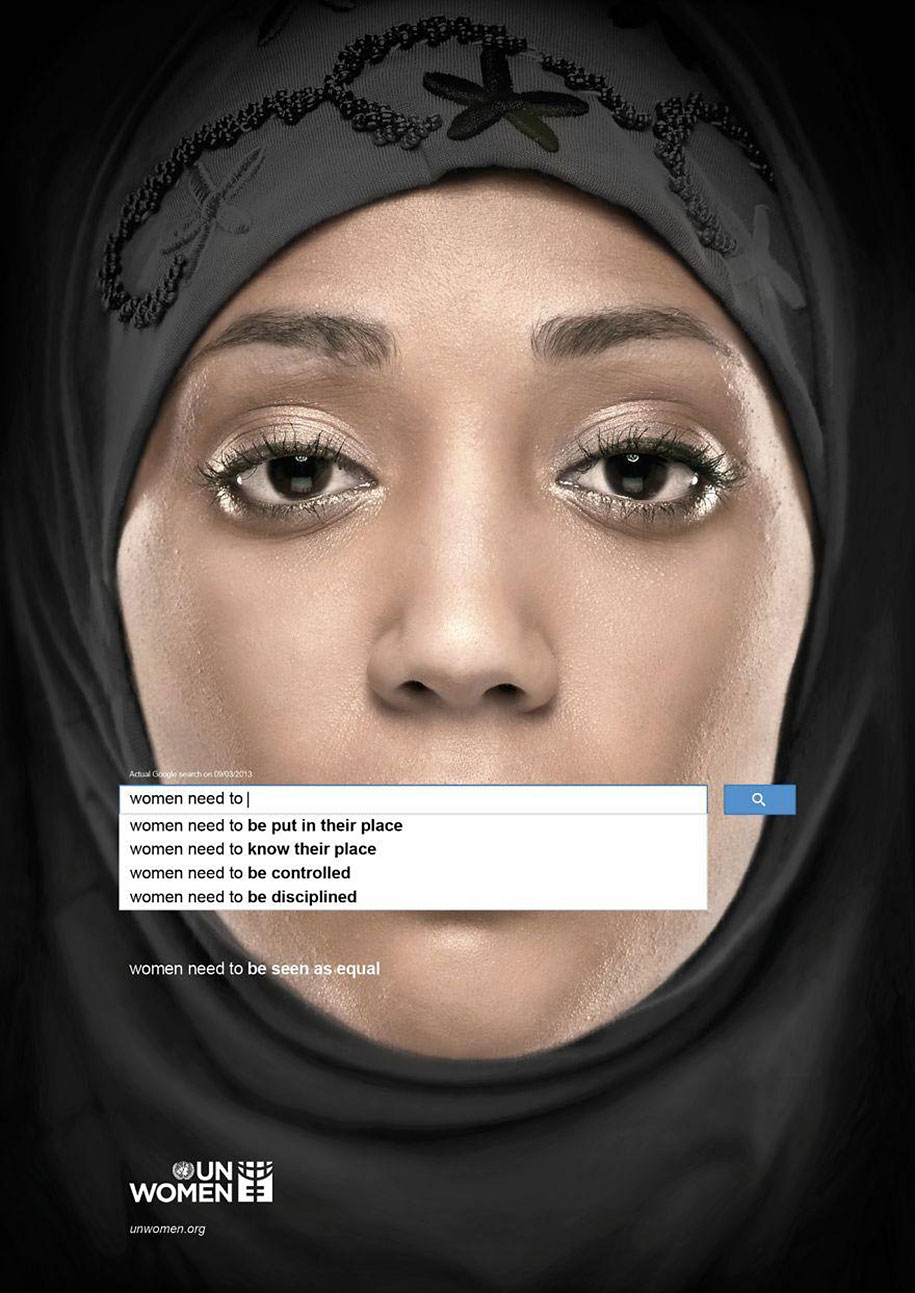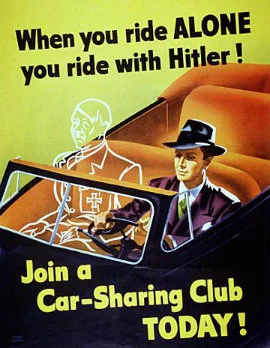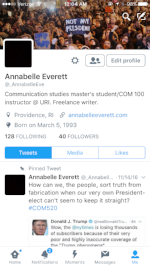“Friend Request?”: A Multimedia Project on Social Media and “the Facebook Effect” on Friendship
Research Questions
What are the differences between traditional “real world” friends and Facebook friends?
How is the definition of “friend” and “friendship” changing due to Facebook?
How are teenagers’ friendships affected by Facebook and social media?
- What are the advantages and disadvantages of Facebook’s conceptualization of friendship and the resulting effect?
Personal Interview Questions
Do you think Facebook has changed how we value friendships? Why/why not?
Does Facebook change how we conceptualize our friendships? Why/why not?
Podcast Format
~50 minute podcast
Introduction of co-hosts and rationale for episode’s content
Brief overview of concepts from The Culture of Connectivity by Jose Van Dijck (2013) that sparked our interest
Application to our lives
Interviews with peers
Discussion on research questions
Debate: Does Facebook have a positive or negative effect on friendships? (Advantages vs. Disadvantages)
Engage the audience: Who won the debate? What do you think? @vvichroski @_annabelle eve
- Wrap-up
Rationale
We chose to research Facebook and it's effect on friendship because of its prevalence in everyday life. Facebook is a tool used to establish an identity and manage a social presence. Therefore, it has a crucial influence on the relationships that interact on the platform and exist in "real life" --the face-to-face world. We found importance in researching this influence to establish exactly what this influence is. Through our independent research and collaborative conversation, many concepts from COM 520 arose which made this project a good ending point for our semester in media studies. We decided to create our project as a podcast due to the conversational nature of it. We wanted our project to be engaging and also exciting for us, so this podcast felt appropriate since it allowed us to stray from the typical research paper and rely on a different form of media.
Concepts Relating to COM 520
The meaning of social: Human connectedness vs. automated connectivity
Making the web social vs. making sociality technical
“Well-connected” people in offline world vs. online world
- Popularity Principle
Much of our interest in this research topic stemmed from this book --specifically chapters 1 and 2. Van Dijck defined social as a combination of human connectedness (natural and traditional) and automated connectivity (engineered and manipulated human connections). This stark difference in the two components of the meaning struck us as contradictory, ambiguous and thought-provoking, thus leading to our research topic.
Van Dijck also contrasted between making the web social and making sociality technical. Although Facebook’s Owner Mark Zuckerberg claims that “technology merely enables or facilitates social activities” (p. 12), Van Dijck argues that this makes sociality technical. In other words, technology “enables platforms to engineer the sociality in people’s everyday routines” (p. 12). So what does this mean for friendships on Facebook and in real life? Our podcast explores this question that was given to me from this book.
The Culture of Connectivity also defined “well-connected” people offline versus online. These definitions couldn’t have been in greater opposition! Van Dijck (2013) said that those who are well-connected offline (or in the real world) are people whose connections are gauged by their quality and status. However, well-connected people online are those with many connections--emphasizing quantity over quality. The online world has made connectivity a quantifiable term. Van Dijck (2013) goes onto to discuss the popularity principle online which states: the more friends you have and make, the more valuable you become, because more people think you are popular and hence want to connect with you. As you can see, connectedness is conceptualized very differently offline and online. However, since our offline and online worlds are continuously overlapping, the lines can be blurred and meanings can be swapped. Van Dijck’s ideas raised questions within us such as: how as the meaning of friend changed due to Facebook?
Weak ties on social networks
Facebook’s distortion of privacy norms and relational etiquette
Facebook promotes informal learning of media literacy
Traditional friendships vs. Facebook friendships
- Need for status vs. companionship
In this article, Rosen (2007) explored the important concept of “weak ties”. “The activities that social networking sites promote are precisely ones that weak ties foster, such as rumor-mongering, gossip, finding people, and tracking popular culture and fad” (p. 21). This connects to COM 520 due to our research apprenticeship on girls and their attachment to celebrity figures. Throughout our research on this topic, we discovered that pre-teen to teenaged girls are more likely than other people to engage in these “activities” (rumor-spreading, gossip, tracking fads, etc.) This connection established between our two projects got us thinking: are teens more likely to have weak ties among their friendships than other age groups? Is Facebook an influencer on this?
Rosen (2007) also discusses Facebook’s distortion of privacy norms and relational etiquette. In the offline world, “communities are typically responsible for enforcing norms or privacy and general etiquette” (p.23). Therefore, a challenge is presented in the online world: what is the etiquette? Where is the line drawn for privacy? I connected these thoughts to a topic from COM 520: media regulation. There are many forms of regulation on the media concerning authorship, censorship and more. However, there are not as many for social media such as Facebook. Sure, there are ways to flag inappropriate content and such. However, what is the rule for when a friend posts a comment on your page that you wish was private? Do you delete it? Is that offensive to your friend? The issue of privacy was often a topic explored in COM 520 as well. Privacy is often violated by social media networks giving information and access to profiles to advertisers and companies. But do we violate our own privacy with the information we share to our Facebook “friends”?
Although these unclear norms and etiquette present a problem, Rosen (2007) also presents positive findings: social networks can promote informal learning. She argues that using Facebook can help young people learn media literacy--a term certainly related to COM 520! Although we wish this topic could have been explored more in our podcast, it deepens our interest and encourages our future research.
In this study, Rosen (2007) distinguishes traditional “real-life” friendships from Facebook friendships; much of the podcast is focused on her information. One connection I made from her study to COM 520 had to do with our class on YouTube--specifically the YouTube Cult video. This video raised so many intriguing points, as did our class’s discussion post viewing. YouTubers often present a self to the public that is not genuine; they have motives unknown to the viewers. A fan’s relationship with their favorite YouTuber is parasocial, unreciprocated and very different from their relationships with traditional friends. We were interested how teens’ “relationships” with YouTubers were similar to their relationships with their Facebook friends. Has the trend of forming attachment to a YouTuber that a teen may think that they know influenced how they perceive Facebook friends that they think that they know?
Lastly, this study touched on the different motivations that drive us to initiate and maintain real-world friendships versus offline friendships: the need for companionship versus the need for status. Similarly to our point above, this concept relates to COM 520’s YouTube discussion and more discussions from class. We can recount discussing why people share news or things on social media, why people wish to add to Wikipedia, and more. Studying people’s motivations is extremely interesting and important to understanding behaviors. In this context, it was important to understand the contrasting motivations between establishing real-life friends and Facebook friends. It says a lot more about our topic than it seems (Rosen 2007).
Facebook’s diminishment of “categories” of friends
Facebook, emotional support and Information gathering
Benefits to maintaining weak ties
- Lightweight interactions
In this article, Urist discusses how the word “friend” includes many associations due to Facebook--old classmates, one night stands, even complete strangers. Facebook eliminates friend categories which is harmful for trust and expectations.
However, what is important about this article is the advantages of Facebook it presents. One advantage Urist (2015) presents is “how people use the site to exchange emotional and tangible resources” (p. 1). People can find support from friends during a time of loss or get advice on a good restaurant in the area instantly. Having these resources instantly relates to a concept from COM 520: web 2.0. Because of web 2.0, we are able to interact with people almost instantly and conveniently, and often in a less invasive way than the telephone or face-to-face. The support and resources given on Facebook could strengthen a friendship or begin a new one.
Urist (2015) also presents Facebook’s advantage of weak ties. The community of weak ties one fosters on Facebook can serve as a plethora of information, networking and learning. This is partly due to the social circles that each weak tie has of their own--those social circles are often different from one’s own. Therefore, unique information and networking opportunities are available through these people.
Lastly, Urist (2015) describes the benefits of “lightweight interactions”: the actions one can take on facebook such as liking, commenting, sharing, etc. These friendship maintenance behaviors are convenient, fast, easy; they are lightweight. Facebook enables someone to keep in touch with people they may not have otherwise. This relates to COM 520’s web 2.0 topic as well. Web 2.0 and its platforms, such as Facebook, allows for this communication to happen instantly and easily for relationships to stand the test of distance and busy lives.
Sources
Guizzardi, L. (2013). Vis-a-vis to face(book)-to-face(book) interaction: A study on
friendship between young students. Polish Sociological Review, 182, 165.184.
Haynes, N. (2016). Social media in nothern Child. UCL Press.
Rosen, Christine. (2007). Virtual friendship and the new narcissism. The Center for
the Study of Technology and Society, 17, 15-31.
Urist, J. (2015). How real are facebook friendships? The Atlantic. Web:
Van Dijck, J. (2013). The culture of connectivity: A critical history of social media. New York:
Oxford University press.
The Effect of Social Media on Teen Friendships
The need to develop friendships a human one. We desire to feel a sense of connection and belonging with others. The development of social relationships can have a positive correlation with an individual’s mental and physical health. These needs are reflected in social media behavior and explain the resulting need to seek out connections with other virtually, just as we do in real life.
Teens are a prevalent group utilizing social media today. Since they are also a fairly vulnerable population, it is imperative to understand the effect that social media can have their friendships with each other. Social media allow teens to feel constantly connected to their friends, eliminating the barrier of physical distance. These platforms, such as Facebook, let teens consistently keep up peer friendships (Umberson, D., et al. 2010).
Social media allow teens a platform for virtual social support. Because they have eased access to each other via social media, they are able to use these to provide support for one another when not physically together. 73% of social-media using teen girls that were surveyed by the Pew Research Center reported receiving such support via social media, as did 63% of social media-using teen boys (Pew Research Center, 2015). Teens use a variety of platforms, ranging from the widely accessed Facebook to the more adolescent-focused Snapchat. This research is particularly relevant for this project because Facebook remains the most widely used social media platform among teens (Pew Research Center, 2015).
Social media has proven to be an effective place for teens to both make new friendships and sustain old ones. 94% of surveyed teens reported continually using social media to spend time with friends online (Pew Research Center 2015). These digital spaces can be beneficial in teen development, but also come with a host of drawbacks. Because teen friendships are so apparent on social media platforms, teens feel pressure to post popular content that will garner attention in the form of “likes” and comments from friends. 39% of surveyed teens felt pressure to post content that would be viewed as popular and widely liked by friends, while 40% felt pressure to post only content that would paint them in a positive light (Pew Research Center 2015). Teens are already consumed by a desire to be liked by other people, and this extend to digital “likes” as well. This focus on online attention can lead teens to equate likes with self-worth, distorting their conceptualizations of the self and negatively affecting their relationships. Such a correlation can have long-lasting, disastrous consequences on a teen’s emotional and mental health.
Sources:
Bernstein, E. (2009, August 25). How Facebook ruins friendships. Wall Street Journal.
Retrieved from http://www.wsj.com/articles/
SB10001424052970204660604574370450465849142
Lenhart, A, Smith, A, Anderson, A, Duggan, M., & Perrin, A.. (2015). Teen, Technology,
& Friendships. Washington, D.C.: Pew Research Center, pp. 53-62.
Popescul, D. & Georgescu, M. (2015). Generation y students in social media: What do
we know about them? BRAIN: Broad Research in Artificial Intelligence & Neuroscience,
6(3 / 4), 74-81.
Rideout, V., Foehr, & Roberts, D. (2010). Generation M²: Media in the lives of 8- to
18-year-olds. Kaiser Family Foundation.
Stout, H. (2010, April 10). Antisocial networking? The New York Times. Retrieved from
http://www.nytimes.com/2010/05/02/fashion/02BEST.html
Umberson, D. & Montez, J. K. (2010). Social relationships and health: A flashpoint for
health policy. Journal of Health and Social Behavior, 51.
Vossen, H. G. M., & Valkenburg, P. M. (2016). Do social media foster or curtail
adolescents’ empathy? A longitudinal study. Computers in Human Behavior, 63, 118-124.
The Dangers of Facebook
Facebook’s influence on friendships is primarily negative and can have disastrous consequences on an individual’s life. Because of social media, more specifically Facebook, we now value our own worth based on the quantity of social media friendships as opposed to the quality of them. In other words, we develop a sense of self-worth on social media based on the number of people we are friends with, regardless of the quality or content of these friendships. Simply put, it is purely a numbers game. In turn, we strive to post content that will make us look appealing to these superficial friends. Yet, the danger lies in the fact that this content is most likely not an accurate representation of our real-life identities.
Facebook is also a source for gaining attention from others. When an event occurs in one’s life, he or she need only to post it on Facebook to get a response from various friends and acquaintances. One’s “real-life” friends would typically already know this information, because they seemingly communicate outside of the realm of social media and are more involved in one another’s life. Therefore, the only reason, and benefit, to posting such information on Facebook is to receive attention and/or sympathy from various virtual friendships. Yet, this sympathy is superficial and the attention unnecessary. This blurs the lines for what is appropriate and leads to superficial expressions of said friendships and, ultimately, a further distorted representation of the user’s identity (Wall Street Journal, The New York Times.)
The pressure to post content, especially that which will be flattering to one’s self, has caused social media users to become socialized to post personal content. The conventions of Facebook make it a seemingly innocent action to post often about one’s life, including deeply intimate information. This can lead to an overall loss or privacy, and even more harmful effects, such as identity theft or online bullying. Backlash from posts is a common theme on Facebook, as people grow more used to posting often about their personal, social, and political beliefs, many of which their fellow Facebook friends will not agree with. The visual anonymity provided by the platform makes it easy to disagree with Facebook friends, often causing people to send harmful messages to friends that they would never have in a face-to-face interaction. The platform can eventually lead to the damaging of one’s real-life friendships, a danger that users must be constantly wary of (Umberson 2010, Vossen, et al. 2016).
Relevant Sources:
Belangee, S., Bluvshtein, M., & Haugen, D. (2015). Cybersocial connectedness: A
survey of perceived benefits and disadvantages of social media use. Journal of Individual
Psychology, 71(2), 122-134.
Bernstein, E. (2009, August 25). How Facebook ruins friendships. Wall Street Journal.
Retrieved from http://www.wsj.com/articles/
SB10001424052970204660604574370450465849142
Jaffe, L. (2015, May 18). 5 reasons why facebook can be dangerous for people with
depression. Huffington Post. Retrieved from:
http://www.huffingtonpost.com/lorne-jaffe/5-reasons-why-facebook-is_b_7295816.html
Stout, H. (2010, April 10). Antisocial networking? The New York Times. Retrieved from
http://www.nytimes.com/2010/05/02/fashion/02BEST.html
Umberson, D. & Montez, J. K. (2010). Social relationships and health: A flashpoint for
health policy. Journal of Health and Social Behavior, 51.
Vossen, H. G. M., & Valkenburg, P. M. (2016). Do social media foster or curtail
adolescents’ empathy? A longitudinal study. Computers in Human Behavior, 63, 118-124.
Personal Interviews
(These interviews were conducted over text message with various peers. They were asked the same questions. The answers are recorded both in direct quote format and by paraphrasing).
Do you think social media has changed how we value our friendships? Why or why not?
J: “I would say no to value because it's not like you like someone more or less based on their social media if they're your good friend because chances are your social media presence is similar. I would say it's changed how we select friends/how we judge friends/how we communicate with friends.”
Content posted by close friends does not change perception of friendship, but can be source of annoyance.
The greater the intimacy of friendship, the less their social media content will influence said friendship.
H: “I would would agree that it doesn't change how I value my friendships. But I think that for some people it probably does! It can be very all encompassing if you read some of the articles of [Instagram] famous people... but I agree that it can make you feel like you want to be friends with people that in all likelihood you would have nothing in common with!”
L: “Well we've used social media since we were like 10 years old so I think it's hard for me to see changes in value. I don't think it changes the value of a true friendship. For example would our friendship be any different if one or both of us didn't use social media? Probably not. It would probably even be better. And then you can get into all the people who have thousands of friends online and 2 friends in real life, and why we only post the highlights from our lives to make ourselves seem happier and like we have a lot of friends… Social media interactions are cheap but I think that's separate from the value of a friendship.”
Does it change how we conceptualize our friendships?
J: “Maybe but I think it changes more about how we conceptualize ourselves/people we don't know.”
May develop a certain image of a person one doesn’t know too well, but this image may or may not be an accurate representation of the person.
H: “[It has] definitely changed how I conceptualize people I don't know and people I don't know WELL. There's definitely [an] in between level where I'm going to check someone's [Instagram] or facebook to help me form an overall social opinion of them… but I know everyone does it to a certain extent. And hopefully that isn't the be all and end all, and for me it isn't... but I'm sure for some people it is.”

![Spotted in my natural [media-saturated] habitat.](https://images.squarespace-cdn.com/content/v1/57d838c6ff7c50b3da770b4b/1480482027659-RVOPL9YFVS4KACNEIKL5/14925418_10154037044527514_4681776071639318510_n.jpg)







